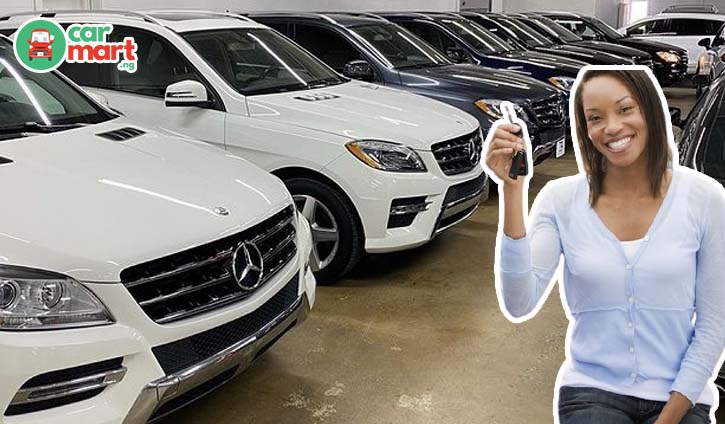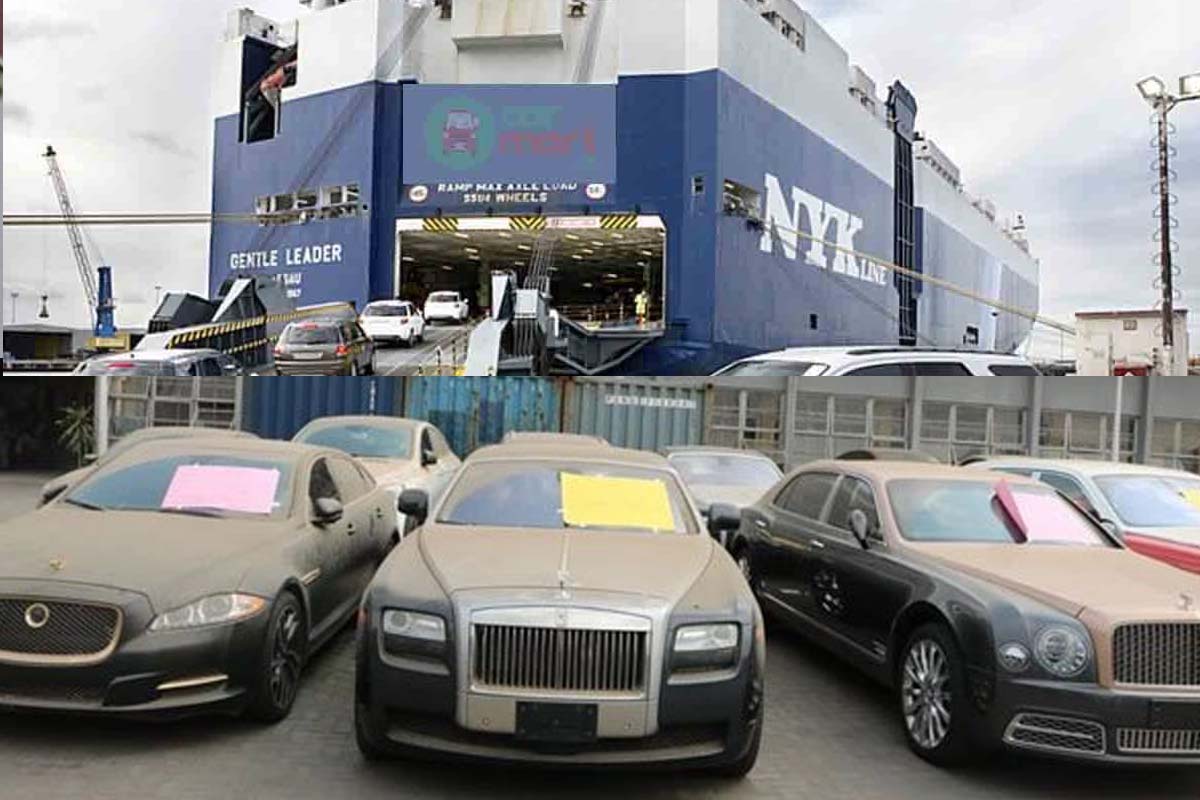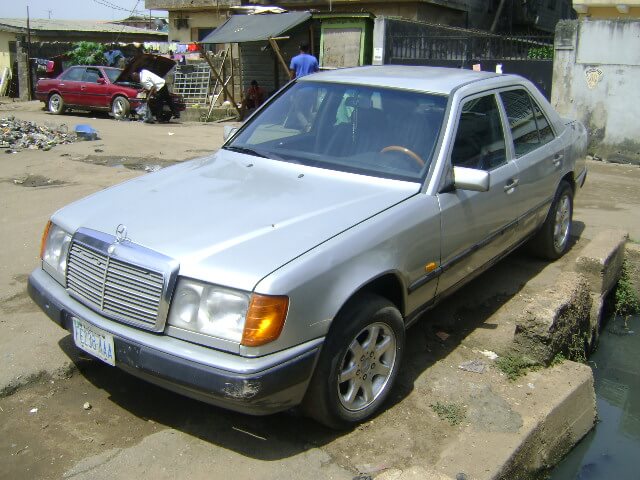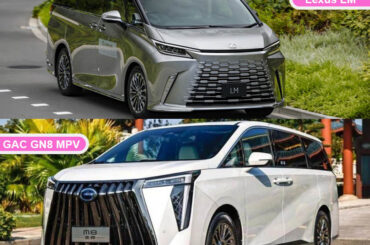The Nigeria Customs Service (NCS) in April 2022 confirmed the reduction of import duty on vehicles from 35 per cent to 20 per cent.
Table of Contents
In a statement signed by Customs National Spokesman, Timi Bomodi, the Service said that the 20 per cent duty is for both used and new imported vehicles.
According to the statement, “On Friday the 1st of April 2022, the Nigeria Customs Service migrated from the old version of the ECOWAS Common External Tariff (2017- 2021) to the new version (2022- 2026). This is in line with the World Customs Organisation’s (WCO) five-year review of the nomenclature. The contracting parties are expected to adopt the review based on regional considerations and national economic policy.
The Nigerian Customs Service is the authority in charge of clearing imported vehicles at Nigerian ports. A couple of years ago, the cost of a car customs clearance in Nigeria depended mainly on the vehicle’s type and age. The import duty position adopted placed the clearance cost at about 22% of the vehicle’s actual price.
Today, the parameters for determining clearing costs have changed. There is a charge of 35% import duty on imported vehicles plus an additional 35% levy, which brings the total clearing cost to 70% of the vehicle’s price. This 48% increase in clearing charge was a move by the government to discourage importation while encouraging locally manufactured cars in Nigeria.
How to Buy Cars from Overseas
It is common knowledge that almost all cars found on Nigerian roads are being shipped from abroad because there is only one manufacturing plant in the whole of Nigeria which is Innoson Motors and it’s safe to say that Nigerians don’t really patronise made-in-Nigeria items.
Calculation Summary:
- 1. Import Duty = Dollar value of your car x Customs exchange rate x Duty percentage
- 2. Levy = Dollar value of your vehicle x Customs exchange rate x Levy percentage
- 3. Surcharge = Calculated import duty in naira x SUR Percentage
- 4. ETL = The dollar value of your vehicle x
- Customs exchange rate x ETL Percentage
- 5. VAT = Dollar value of your car x Customs exchange rate + import duty + Levy + Surcharge + ETL = Total x VAT percentage
What to look for when buying a used car

When you’re looking for a used car, there are a few things to consider:
Reliability: Google is your best friend when it comes to learning about your car’s reliability. Searching for recalls and consumer reviews is your best overview of the vehicle. The price of the vehicle will also give you some insight into its reliability, as lower-priced vehicles may be at the end of their lifespan.
Vehicle History Report: Using the car’s VIN, you can run a vehicle history report on our Nigeria Vehicle Identification Number Checker. The report should come back with any serious accident claims, including fire or flood. Some car lots may spin the odometer back to increase the selling price, the vehicle history report can alert you of the real number. Some reports even show if maintenance was done on time and the locations where it was performed.
Durability: Find out whether or not any parts have been replaced, or if you have to replace any of them soon. If something needs to be replaced, it opens up space for negotiation.
Cost Of Shipping A Car From the United States To Nigeria
| CAR | SHIPPING COST DOLLAR | SHIPPING COST NAIRA | EXAMPLE |
| Sedan | $1,290 | N534,873 | Toyota Corolla, Honda Accord |
| Small SUV | $1,290 | N534,873 | Toyota Rav4, Honda CRV |
| Medium SUV | $1,490 | N617,799 | Toyota Highlander |
| Large SUV | $1,999 | N829,260 | Toyota Sequoia |
| Space Bus | $1790 | N724,188 | Honda Odyssey |
| Van | $2400 | N995,112 | Ford F150 |
Calculating Car Import Duty In Nigeria
There is a lot to learn about how to import cars to Nigeria. The USA, Canada, Europe and Germany are some of the most prominent locations where Nigerians import used vehicles, this guide will cover all the details you need to know about importing cars to Nigeria.
This course will cover the latest trends in the vehicle importation industry and provide you with the necessary information to make informed decisions when it comes to importing cars into Nigeria. In addition, we will talk about the customs clearance procedures and how to calculate the vehicle import duty.
Import Duty For Specific Vehicles In Nigeria
The awaited changes on import duty for specific motor vehicles to support the 2022 budget’s economic improvement are here. According to our source, the changes affect the importation of particular automotive vehicles into Nigeria.
The below table includes the previous, the latest, and their difference to establish clarity.
| TYPE OF VEHICLE | PREVIOUS DUTY | CURRENT DUTY | DIFFERENCE |
|---|---|---|---|
| Trucks | 35% | 10% | – 25% |
| Commercial Buses (from 10 Passengers) | 35% | 10% | – 25% |
| Agricultural Tractors | 35% | 5% | – 30% |
| Dumpers | 35% | 10% | – 25% |
| Used Cars | 35% | 35% | – 0% |
| New Cars | 35% | 35% | – 0% |
| New Cars (levy) | 70% | 5% | – 65% |
Note: It is crucial to confirm the information stated above with Nigerian Customs Authority or your clearing agent in Nigeria to know any new changes that are unknown to us. And to further know if the authority has started to implement the new changes.
Restrictions and Requirements for Car Importation to Nigeria
Vehicles older than 15 years are not allowed for importation into Nigeria. Therefore any vehicle above this age attracts a penalty. New vehicles require Form M. The consignee must obtain it in Nigeria before shipping. All vehicles to be imported must have a clear title of ownership.
Cost Of Transporting A Vehicle Shipping Agent’s garage
Some auto buyers do not know that when they purchase a vehicle in a particular country, there may be a transportation charge for carrying it from the location of buying to the shipping agent’s garage, The cost of transporting a vehicle from the A to B location is still the same. The transporters charge 1 Euro per km in most countries.
Shipping your Vehicle to Nigeria
After you’ve purchased your desired vehicle, a shipping agent or car broker can arrange your vehicle’s shipping. Auction websites often have affiliated shipping companies that work with them. Alternatively, you can contact one of many independent shipping companies to deliver your vehicle for onward shipping to Nigeria.
Available shipping methods and options you can rely on to move your purchase from overseas to Nigeria include:
- Full Containerized Shipping
- RoRo Shipping
- Container Groupage
How to Clear Your Vehicle at the Ports
After your shipping company has landed your vehicle at the port, you need a clearing agency to complete the process of clearing your vehicle.
Although there are steps, you can complete them yourself. You may consider using a licensed clearing agent for the most part. Below are the necessary steps and documents you will need:
Bill of Lading
A Bill of lading is a document that contains all information such as model, year, VIN/chassis number, weight, and name of conveying vessel, the port of origin and discharge, and also details of the consignee to receive the vehicle in Nigeria. You should receive this document from your shipping company ahead of time before the arrival of your car. You can obtain it through express courier or via email, which you’ll need to print.
Application for Duty Valuation
This application has to be written by a licensed customs clearing agency. It accompanies a copy of the BOL (Bill of Loading) and addresses the Nigerian Custom Office, e.g., Tincan, Apapa, and Onne.
In response to this application, the customs office will provide your clearing agent with your vehicle’s duty valuation in dollars. It is this dollar value that will be used to calculate your vehicle’s 35% surface duty. An additional 35% levy is charged, which brings the total clearing cost to 70%.For example,
Let’s say the customs office determines a $5,000 value for your foreign-used vehicle. The calculation of surface duty is as follows:
- $5,000 X (35/100) X N380 (Customs official dollar rate) = N665, 000
There may be other charges which could arise in the processing. Please verify them with your customs clearance agent.
Print DTI
Your clearing agency will obtain a Direct Trader Input, also called Assessment Notice or Single Goods Declaration Form, upon submitting the duty valuation obtained from above. This document will describe the transaction, such as vehicle type, terminal location, approved duty amount, and vehicle contents (if any).
This step, commonly called “punching,” is a significant step among all the steps involved in how to import cars to Nigeria. It merely means inputting the car’s details and the Nigerian Customs server’s duty valuation. They need the TIN (Tax Identification Number) of the consignee to process the DTI.
Import Duty Payment
Proceed to the bank with the Assessment Notice obtained from above to make your import duty payment. You get a receipt upon payment.
Collate All Documents
Put together the bank’s duty payment receipt, assessment notice, valuation copy, and bill of lading. Submit all to the customs office where the vehicle will be registered and scheduled for physical examination upon confirmation that the correct duty amount has been paid. Otherwise, there will be an alert on the car until the owner makes the right duty payment. The releasing officer receives a report to release the vehicle if things are correct.
Release at Shipping Company
At this point, you are to put together your vehicle’s original signed bill of lading, SGD, and signed copy of the consignee’s ID, and submit all to your shipping company. The following are acceptable for the consignee’s ID: driver’s license, international passport, national ID, or certificate of incorporation for a company.
You’ll also need a copy of Form C30 (Custom documents that license custom agencies to operate) and a letter of authorization from your clearing agency. In return, your shipping company will give you an assessment to pay any outstanding shipping and terminal charges, and upon payment, you get an exit copy.
Clearing at Customs Gate Office
At this point, you are almost free to go but not entirely. At the Customs gate office, you’ll submit your customs release document and exit copy from your shipping company. Upon verification, your documents will be stamped and signed. With your shipping company’s payment receipt and a copy of the signed gate document, you get a terminal delivery order.
Final Custom Check
With the TDO (Terminal Delivery Order) issued from above, your vehicle can now be released to the open floor in readiness to cross the exit gate out of the port. Albeit not without a final custom check.
Have 1 million naira and above to Buy or Sell Cars In Nigeria? Check carlots.ng
All rights reserved. Reproduction, publication, broadcasting, rewriting, or redistribution of this material and other digital content on carmart.ng is strictly prohibited without prior express written permission from Carmart Nigeria - Contact: [email protected]







